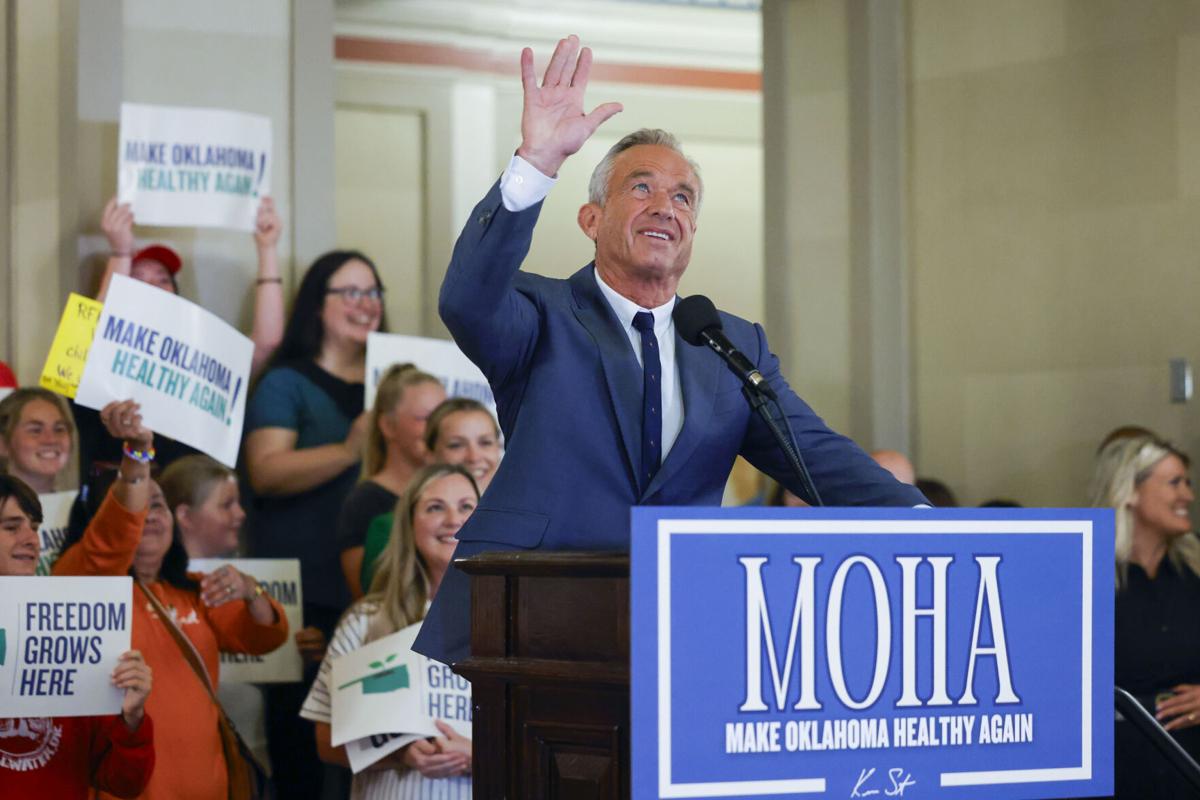Politics
Rep. Rob Hall Calls for New Approach to Food Safety in Oklahoma

Rep. Rob Hall has urged for a significant shift in the approach to food safety in Oklahoma, citing a growing health crisis characterized by rising rates of obesity, diabetes, heart disease, and cancer. In a recent statement, Hall emphasized that the current food supply and safety regulations are contributing to these health issues rather than alleviating them. He believes it is time to redefine what food safety means to better serve the health of the public.
Rethinking Food Safety
Hall pointed out that for decades, the food safety industry has predominantly focused on preventing foodborne illnesses, a mission that many view as essential. However, this narrow focus has inadvertently encouraged the production of highly processed foods while hindering access to healthier, natural alternatives. “We need a new food safety paradigm with a dual mandate,” Hall stated, “to manage the acute risk of foodborne illness and the chronic risk of diseases such as obesity and heart disease.”
The call for reform comes amid alarming statistics on health issues across the nation. According to the Centers for Disease Control and Prevention, more than 42% of adults in the United States are classified as obese, a condition linked to numerous chronic diseases. Hall asserts that the current food safety regulations are not only outdated but are also obstructing healthier food choices.
During a recent event, Hall joined HHS Secretary Robert F. Kennedy Jr., Oklahoma Governor Kevin Stitt, and other state leaders to launch the Make Oklahoma Healthy Again initiative. This initiative aims to improve access to healthy, natural foods as a critical step toward reversing Oklahoma’s chronic disease epidemic.
Challenging Conventional Beliefs
Hall highlighted the need to challenge conventional notions of food safety. He posed a provocative comparison between unpasteurized milk and processed snacks like Oreos. While many might instinctively deem unpasteurized milk as less safe due to the risk of foodborne illness, Hall questions whether the long-term health impacts of consuming processed foods are being sufficiently considered. “We’ve confused sterility with safety,” he remarked, emphasizing that a cigarette, though sterile, is far from safe due to its cancer risks.
Furthermore, Hall advocates for the inclusion of probiotics in discussions about food safety. He noted that many unprocessed foods contain beneficial bacteria essential for digestive health. “Our digestive systems actually need many of these foodborne bacteria to function properly,” he explained, urging a broader understanding of what constitutes safe food.
To effect real change, Hall calls for comprehensive legal and regulatory reforms that prioritize access to unprocessed, preservative-free foods. He believes that empowering citizens to make informed choices about their food, considering both acute and chronic risks, is essential for fostering a healthier society. “The chronic disease epidemic is reversible, but only if we adopt a more holistic view of food safety,” he stated.
With increasing support for the initiative, Hall invites fellow leaders and citizens across Oklahoma to join in re-evaluating the existing food safety framework. He insists that recalibrating the definition of food safety is not just a necessity but a moral imperative for the health of future generations.
-

 Lifestyle3 months ago
Lifestyle3 months agoLibraries Challenge Rising E-Book Costs Amid Growing Demand
-

 Sports3 months ago
Sports3 months agoTyreek Hill Responds to Tua Tagovailoa’s Comments on Team Dynamics
-

 Sports3 months ago
Sports3 months agoLiverpool Secures Agreement to Sign Young Striker Will Wright
-

 Lifestyle3 months ago
Lifestyle3 months agoSave Your Split Tomatoes: Expert Tips for Gardeners
-

 Lifestyle3 months ago
Lifestyle3 months agoPrincess Beatrice’s Daughter Athena Joins Siblings at London Parade
-

 World3 months ago
World3 months agoWinter Storms Lash New South Wales with Snow, Flood Risks
-

 Science3 months ago
Science3 months agoTrump Administration Moves to Repeal Key Climate Regulation
-

 Science2 months ago
Science2 months agoSan Francisco Hosts Unique Contest to Identify “Performative Males”
-

 Business3 months ago
Business3 months agoSoFi Technologies Shares Slip 2% Following Insider Stock Sale
-

 Science3 months ago
Science3 months agoNew Tool Reveals Link Between Horse Coat Condition and Parasites
-

 Sports3 months ago
Sports3 months agoElon Musk Sculpture Travels From Utah to Yosemite National Park
-

 Science3 months ago
Science3 months agoNew Study Confirms Humans Transported Stonehenge Bluestones









